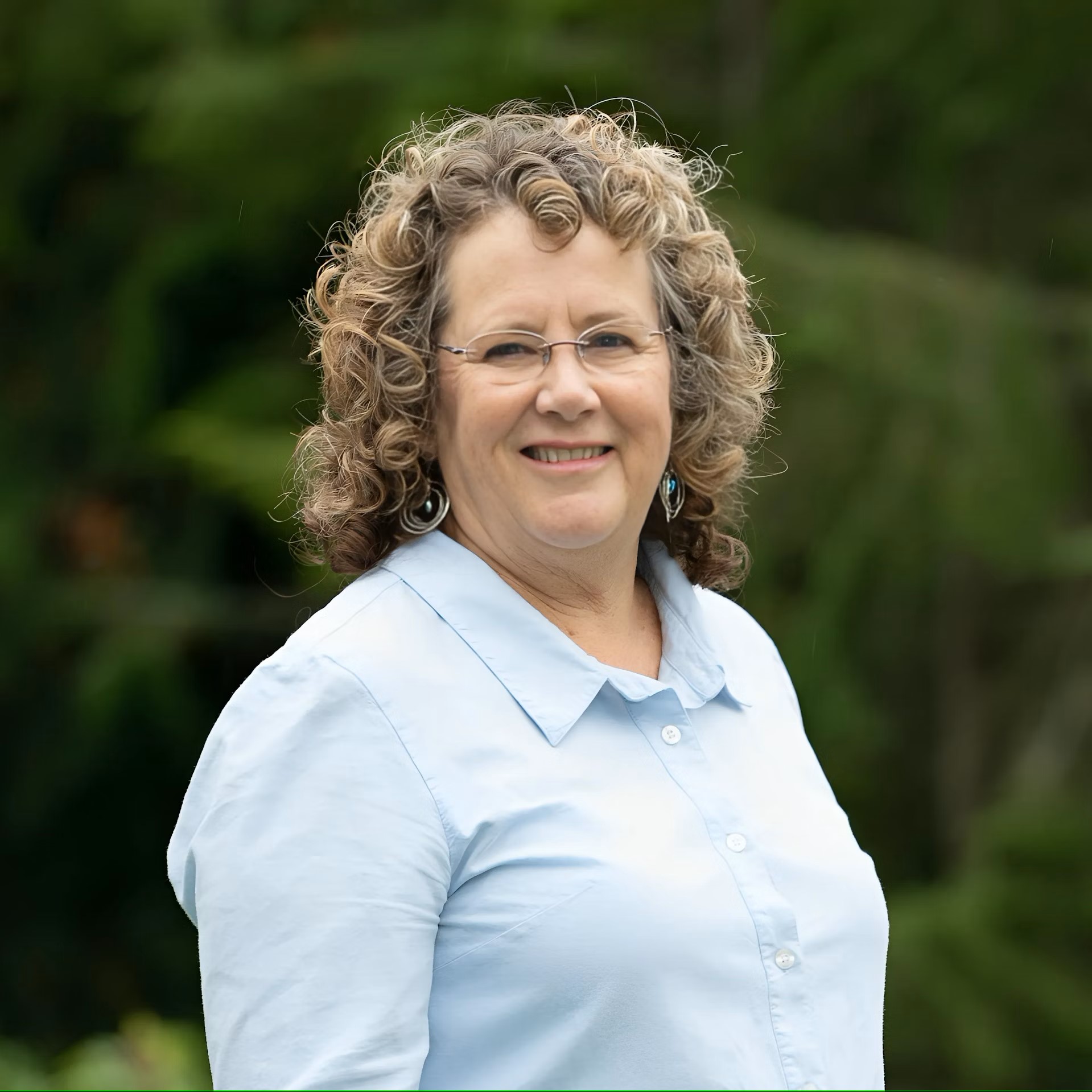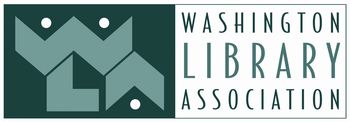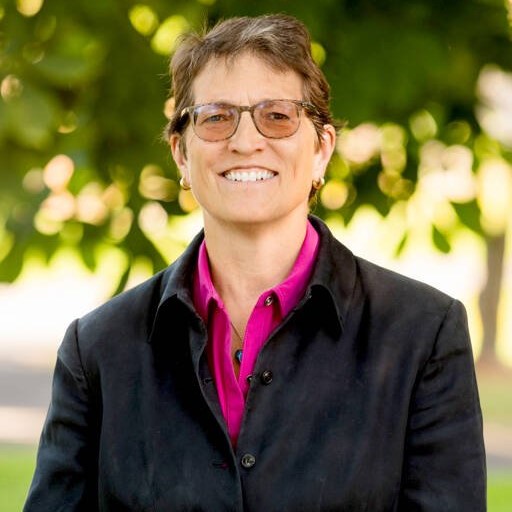2024 WA State Senate Candidate Statements
WA Voting Information | Register to Vote | Find Your District
State Executive Candidate Statements | State House Candidate Statements | WA Candidate Homepage
Candidates for WA General Election Positions were asked to answer the following questions for their candidate statement:
- How have you used and supported libraries in your personal and professional experience?
- What role do you envision public libraries playing in improving the lives of your constituents, and how will you ensure they are adequately funded and supported?
- What connection do you see between libraries and informed citizens, healthy democracies, and the dissemination of accurate information within Washington state?
- How will you promote digital equity and ensure that libraries receive funding to close the digital divide, considering their decades-long experience in digital work?
- How will you work to increase student access to strong school library programs staffed by qualified Teacher-Librarians?
- Libraries continue to see decreased funding for collections especially in rural and underserved areas. Presently, the state does not play any role in providing funds to public libraries. Would you support the creation of a state fund to provide money for public libraries’ collections?
Thank you to all of the 2024 WA Elections Candidates who participated in our Library Advocacy Survey!
State Senate Candidate Statements
Districts 1-10 | Districts 11-20 | Districts 22-28 | Districts 39-49
District 1
Derek Stanford
Responses to the WLA survey from Derek Stanford were not provided.
District 2
Jim McCune | Erasmo Ruiz Gonzalez
Responses to the WLA survey from Jim McCune and Erasmo Ruiz Gonzalez were not provided.
District 3
Marcus Riccelli
Responses to the WLA survey from Marcus Riccelli were not provided.
District 4
Leonard Christian | Miguel Valencia
Responses to the WLA survey from Leonard Christian and Miguel Valencia were not provided.
District 5
Bill Ramos
Responses to the WLA survey from Bill Ramos were not provided.
Chad Magendanz
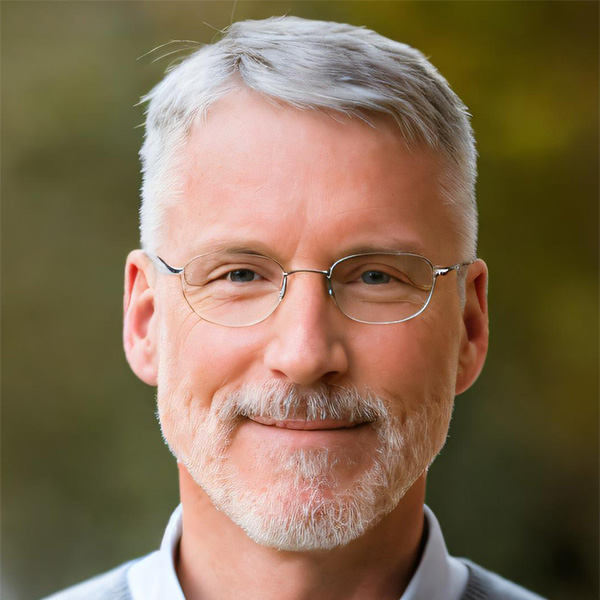
How have you used and supported libraries in your personal and professional experience?
Yes, I'm starting my 6th year as a full-time teacher.
What role do you envision public libraries playing in improving the lives of your constituents, and how will you ensure they are adequately funded and supported?
The librarians were an advocacy force like none other when I was Ranking on House Education, and their talking points still ring true today. I support our school libraries and our librarians, and I was one of the lead negotiators that doubled state funding for schools over 8 years for McCleary.
What connection do you see between libraries and informed citizens, healthy democracies, and the dissemination of accurate information within Washington state?
They say knowledge is power, and with the Internet dominated by misinformation, it's important that students have sources of information that they can trust.
How will you promote digital equity and ensure that libraries receive funding to close the digital divide, considering their decades-long experience in digital work?
Remote learning for COVID exacerbated the achievement gap, and I attribute much of that to the digital divide. Rural districts and low-income families simply didn't have the same access to broadband Internet and district laptops that we did here in the Bellevue School District.
How will you work to increase student access to strong school library programs staffed by qualified Teacher-Librarians?
I'll listen to policy recommendations from our teacher-librarians. I myself just renewed my residency teacher certification in Computer Science and Technology Education and am certified in two other states in those subject areas.
Libraries continue to see decreased funding for collections especially in rural and underserved areas. Presently, the state does not play any role in providing funds to public libraries. Would you support the creation of a state fund to provide money for public libraries’ collections?
Yes, and I would encourage public-private partnerships to do the same.
District 9
Mark Schoesler
Responses to the WLA survey from Mark Schoesler were not provided.
District 10
Ron Muzzall
Responses to the WLA survey from Ron Muzzall were not provided.
Janet St Clair
How have you used and supported libraries in your personal and professional experience?
As a County Commissioner, I have been responsible for administrative oversight of the bonds that helped build two libraries in Island County. I have been a donor to Friends of the Sno-Isle Library and a supporter of libraries since I was young. Currently, I am in partnership with Sno-Isle Libraries on a digital equity grant for our communities.
What role do you envision public libraries playing in improving the lives of your constituents, and how will you ensure they are adequately funded and supported?
I am a strong believer in the role of libraries for convening and community building, promoting literacy and early childhood education and as a place where constituents can find resources, digital literacy, employment and economic security. They are a critical partner in our role to promote equity and inclusion in our communities. Personally, I will always support our libraries through policy and budget, help promote their needs as junior taxing districts and community anchor institutions.
What connection do you see between libraries and informed citizens, healthy democracies, and the dissemination of accurate information within Washington state?
Libraries are trusted community institutions that provide information and assistance, educational outreach and workshops, and gathering places for community partners to host events and outreach. They are a strong partner in a healthy democracy and informed citizenry.
How will you promote digital equity and ensure that libraries receive funding to close the digital divide, considering their decades-long experience in digital work?
I have been deeply involved in closing the digital equity gap in our state through both infrastructure expansion and through digital navigation for seniors, veterans, low literacy and limited English speakers and other identified populations. I also am working on educational strategies and outreach for cyber security, how to keep kids safe online, healthcare digital literacy, economic development and other programs to promote digital equity. Libraries have been and will continue to be key partners in this work. I also think we must continue to support the E-Rate program by the FCC that uses funding to support schools and libraries.
How will you work to increase student access to strong school library programs staffed by qualified Teacher-Librarians?
This is an important question as we confront the reality of inadequate funding for public schools. I support re-examining our funding algorithms including regionalization policies that hurt rural and frontier schools.
Libraries continue to see decreased funding for collections especially in rural and underserved areas. Presently, the state does not play any role in providing funds to public libraries. Would you support the creation of a state fund to provide money for public libraries’ collections?
Yes. I also think we need to review the FCC programs that support libraries and schools to also explore how they can be better utilized and leveraged.
District 11
Bob Hasegawa
Responses to the WLA survey from Bob Hasegawa were not provided.
District 12
Keith Goehner | Jim Mayhew
Responses to the WLA survey from Keith Goehner and Jim Mayhew were not provided.
District 14
Curtis King | Maria Beltran
Responses to the WLA survey from Curtis King and Maria Beltran were not provided.
District 16
Perry Dozier
Responses to the WLA survey from Perry Dozier were not provided.
Kari Isaacson

How have you used and supported libraries in your personal and professional experience?
Used to walk to neighborhood library when a kid; worked at Mortvedt Library at PLU as a college student; always had a library card! When working at the Skillman Foundation in Detroit, MI I initiated a $5 million grant to the Detroit Public Library to refurbish and reopen the downtown branch and rename it The Rose Skillman Library. (1990s)
What role do you envision public libraries playing in improving the lives of your constituents, and how will you ensure they are adequately funded and supported?
Libraries are sources of information whatever the media - and community hubs available for meetings, seminars, lectures and candidate forums. The children's portion of the library with its enrichment and development opportunities for all children including the poorest is critical to civil society. I am a strong advocate for libraries, and as a Senator will support laws and policies that strengthen them, and preserve their traditional function and look for ways to maximize their resources (knowledge, staff, space) for the community.
What connection do you see between libraries and informed citizens, healthy democracies, and the dissemination of accurate information within Washington state?
Key to all of the above.
How will you promote digital equity and ensure that libraries receive funding to close the digital divide, considering their decades-long experience in digital work?
Important that access to the internet and computers is available to people who otherwise would not have that access.
How will you work to increase student access to strong school library programs staffed by qualified Teacher-Librarians?
As a Senator will welcome ideas and suggestions for ways to increase resources for libraries from Teacher-Librarians and schools.
Libraries continue to see decreased funding for collections especially in rural and underserved areas. Presently, the state does not play any role in providing funds to public libraries. Would you support the creation of a state fund to provide money for public libraries’ collections?
It is highly likely that I would do so, and also would seek to partner with philanthropy to encourage public and private support for collections. I have been somewhat involved with the effort in Columbia County, WA to fight for library independence and preservation with Elise Severe of Neighbors United for Progress (NUP) PAC. I was in the courtroom when the decision was announced declining to approve a ballot initiative to close the local library after a "Moms for Liberty" aligned group was unsuccessful banning 7 targeted books. NUP also was key to the law passed earlier this year making it more difficult to put such a measure on the ballot through initiative. (i.e. bringing the number of signatures required to put such a measures on the ballot up to the % required by other initiatives).
District 17
Paul Harris | Maria Keethler
Responses to the WLA survey from Paul Harris and Maria Keethler were not provided.
District 18
Adrian Cortes | Brad Benton
Responses to the WLA survey from Adrian Cortes and Brad Benton were not provided.
District 19
Jeff Wilson | Andi Day
Responses to the WLA survey from Jeff Wilson and Andi Day were not provided.
District 20
John Braun
Responses to the WLA survey from John Braun were not provided.
Back to top
District 22
Jessica Bateman
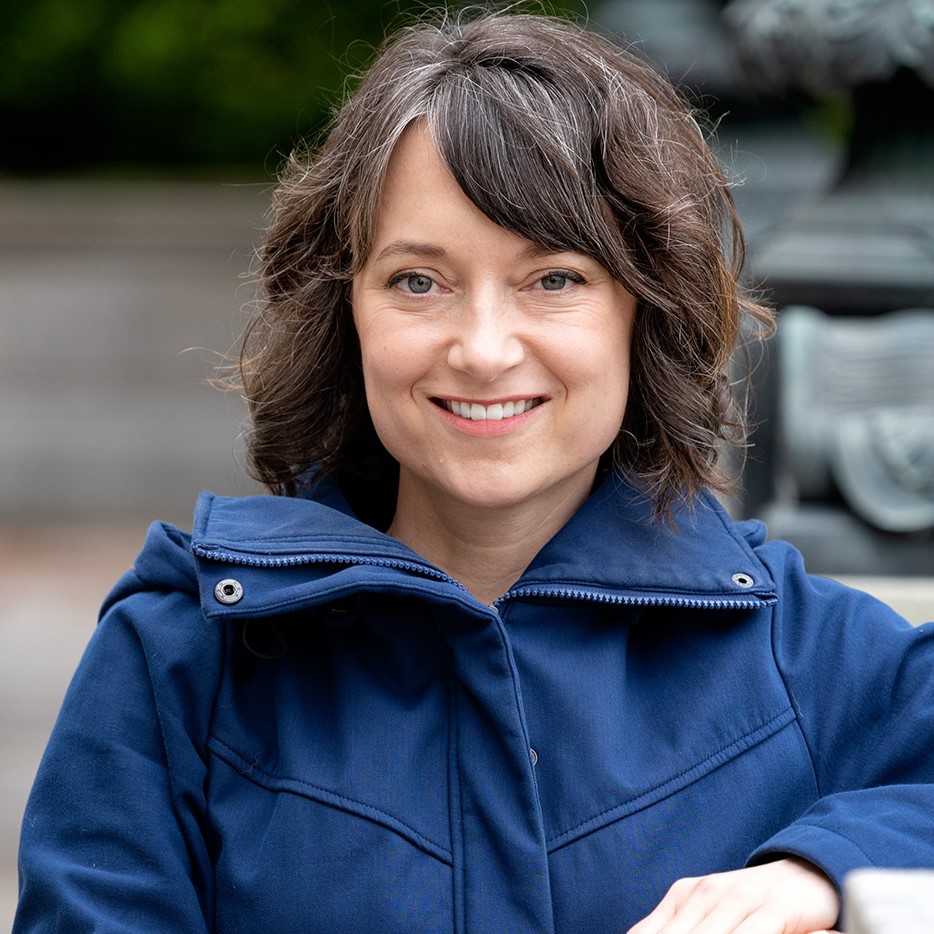
How have you used and supported libraries in your personal and professional experience?
As a first-generation college graduate, libraries have been a cornerstone of my learning and development. In my academic journey, I utilized public libraries for research, expanding my understanding of various topics, and benefiting from their accessible resources. Professionally, I continue to push for increased funding to ensure that students in the public sector have access to all necessary resources, such as access to libraries. Personally, I love my Libby app and use it all the time!
What role do you envision public libraries playing in improving the lives of your constituents, and how will you ensure they are adequately funded and supported?
Public libraries are vital to civic engagement, lifelong learning, and community enrichment. I see libraries as safe spaces where all citizens, regardless of income or background, can access information, develop digital skills, and engage with the broader community. To ensure libraries are adequately funded, I will advocate for both state and local funding initiatives, seek public-private partnerships, and work to establish grants aimed at supporting libraries in underserved areas. I have already begun this work to ensure that our youth have this resource available to them. I co-sponsored HB 1590 which stabilizes state funding for schools by providing an amount equal to 50% of the difference in funding from 2019-20 and 2021-22 enrollment if the district revenue in the 2021-22 school year is less than what it would be using 2019-20 enrollment numbers. It also stabilizes local effort assistance and local enrichment levy limits by allowing the use of 2019-20 enrollments to calculate enrichment levy limits for the 2023 calendar year.
What connection do you see between libraries and informed citizens, healthy democracies, and the dissemination of accurate information within Washington state?
Libraries are critical to the health of our democracy. They provide access to accurate, reliable information, which is essential for an informed electorate. Public libraries serve as hubs for education and engagement, ensuring that our community can participate fully in democratic processes. In Washington, they play an even greater role by helping bridge the gap in access to trustworthy information in rural and underserved areas. By supporting libraries, we are not only ensuring access to knowledge but also nurturing informed and active citizens.
How will you promote digital equity and ensure that libraries receive funding to close the digital divide, considering their decades-long experience in digital work?
To promote digital equity, I will push for legislation and budget allocations that support expanding libraries' digital infrastructure, including high-speed internet access, modern technology, and digital literacy programs. Libraries have long been pioneers in offering digital resources, and by leveraging their expertise, we can ensure more equitable access to technology and training.
How will you work to increase student access to strong school library programs staffed by qualified Teacher-Librarians?
I believe that strong school library programs are essential to fostering students' curiosity, research skills, and digital literacy. I will advocate for increased funding to hire and train qualified Teacher-Librarians who can collaborate with educators and support students' academic growth. Collaborating with local school districts and education departments to ensure that library programs are integrated into the broader educational framework is also a great strategy to ensure students have access to strong school library programs.
Libraries continue to see decreased funding for collections especially in rural and underserved areas. Presently, the state does not play any role in providing funds to public libraries. Would you support the creation of a state fund to provide money for public libraries’ collections?
Yes, because the creation of a state fund to support public libraries' collections is essential to maintaining equitable access to resources, especially in rural and underserved areas. Therefore, I support the creation of a state fund that provides money for public libraries’ collections. This is vital for ensuring that libraries can continue to serve as vibrant centers of learning and engagement.
Bob Iyall
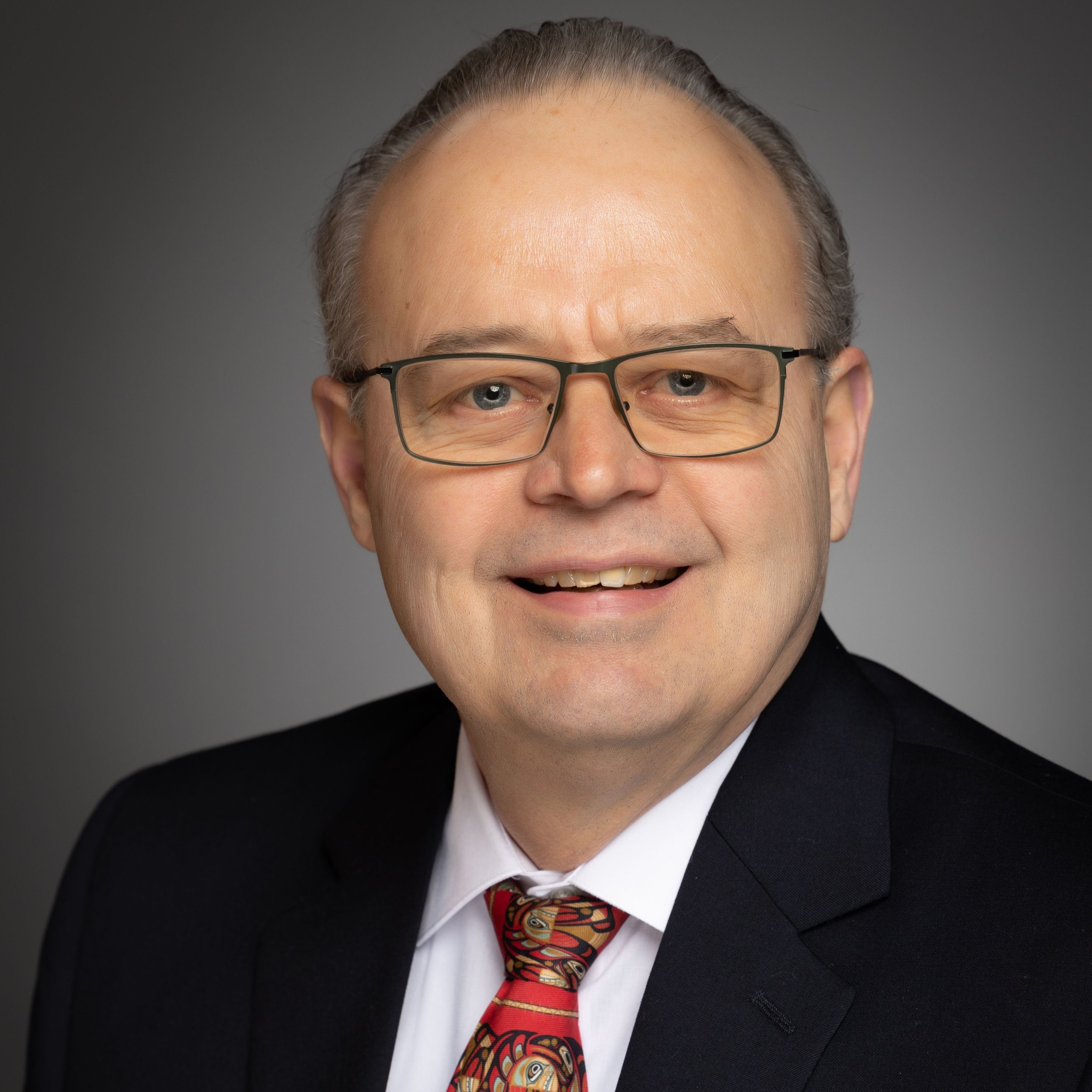
How have you used and supported libraries in your personal and professional experience?
In my capacity as CEO of a 900 employee corporation, we have begun securing library cards for all to take advantage of the online training resources offered at Timberline Regional Libraries.
What role do you envision public libraries playing in improving the lives of your constituents, and how will you ensure they are adequately funded and supported?
I am happy to participate in educating people on the benefits libraries provide. I think many people have no idea that a library is so much more than just a place to borrow books.
What connection do you see between libraries and informed citizens, healthy democracies, and the dissemination of accurate information within Washington state?
Libraries can play a vital role in sharing information that assists voters in choosing a candidate to vote for.
How will you promote digital equity and ensure that libraries receive funding to close the digital divide, considering their decades-long experience in digital work?
Educational programs for seniors and those with limited or no access to digital resources is a good idea. At the Nisqually Indian Tribe, where I am a member, we have created a program to assist elders in becoming digitally literate.
How will you work to increase student access to strong school library programs staffed by qualified Teacher-Librarians?
Education is a fundamental priority for the WA State Legislature and school libraries are an essential aspect of the education experience. I will work to ensure schools are properly funded and support the school library system.
Libraries continue to see decreased funding for collections especially in rural and underserved areas. Presently, the state does not play any role in providing funds to public libraries. Would you support the creation of a state fund to provide money for public libraries’ collections?
Yes, I would.
District 23
Drew Hansen | Lance Byrd
Responses to the WLA survey from Drew Hansen and Lance Byrd were not provided.
District 24
Mike Chapman
Responses to the WLA survey from Mike Chapman were not provided.
Marcia Kelbon
How have you used and supported libraries in your personal and professional experience?
I have been a lifelong user of public community libraries for personal enjoyment, and as a professional have used University legal and medical libraries.
What role do you envision public libraries playing in improving the lives of your constituents, and how will you ensure they are adequately funded and supported?
Libraries are critical for youth and those on the economic edge to access texts and information sources that they may not be able to afford or acquire.
What connection do you see between libraries and informed citizens, healthy democracies, and the dissemination of accurate information within Washington state?
We need to encourage people to read, seek, and analyze information in depth, not just from social media. And libraries fill a role here.
How will you promote digital equity and ensure that libraries receive funding to close the digital divide, considering their decades-long experience in digital work?
On the Olympic Peninsula, we have a good deal of state forestlands managed by DNR. Timber revenue from that land supports many local taxing districts, including libraries. We need to continue to manage our timber lands in a responsible manner, balancing environmental, economic, and wildfire concerns. Doing so will continue to supply library funding.
How will you work to increase student access to strong school library programs staffed by qualified Teacher-Librarians?
The WA constitution provides that providing public education is our paramount duty. This includes strong school libraries providing access to information and teaching how to locate that information, and this needs to be supported.
Libraries continue to see decreased funding for collections especially in rural and underserved areas. Presently, the state does not play any role in providing funds to public libraries. Would you support the creation of a state fund to provide money for public libraries’ collections?
Please see my comments above regarding DNR timber revenue for community libraries and school funding including school libraries. Beyond that I will need to dive in further into conflicting budget demands before I take a position on additional state funding.
District 25
Chris Gildon
Responses to the WLA survey from Chris Gildon were not provided.
Kenneth King
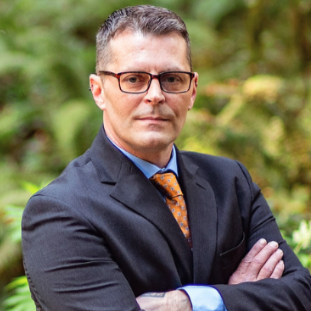
How have you used and supported libraries in your personal and professional experience?
As a community based behavioral health crisis intervention responder, I often partner with local libraries in the south sound area. Specifically the Peer lead community navigation teams. I have also been holding my campaigns meet ups at library meeting rooms.
What role do you envision public libraries playing in improving the lives of your constituents, and how will you ensure they are adequately funded and supported?
Our libraries are the essence of third space community centers. Public libraries will always be on my list of top social programs to defend
What connection do you see between libraries and informed citizens, healthy democracies, and the dissemination of accurate information within Washington state?
Not only do libraries act as one of the last open spaces for shared information exchange, but the libraries in my district also act as skill sharing spaces as well. I plan to introduce more accessible technical studies and certification routes, which will depend heavily on libraries as access points. Libraries have always been and will continue to be the primary space for accessibility in information for our communities.
How will you promote digital equity and ensure that libraries receive funding to close the digital divide, considering their decades-long experience in digital work?
Right now, our pierce county and Tacoma libraries are leading the way for access with program such as the borrowed hotspots. During Covid, our current officials were forced to realize that our district is significantly lacking in digital access. Until we are able to establish that infrastructure, we will need to openly depend on libraries to fill the majority of that gap.
How will you work to increase student access to strong school library programs staffed by qualified Teacher-Librarians?
My campaign has earned the endorsement of state and local educators. This process has included wonderful discussions with school librarians, who have been informing me about the need for more staff, protection of retirement and pension funds, and legislation efforts related to book bans. I will continue to listen and let the professional experience drive my policy writing.
Libraries continue to see decreased funding for collections especially in rural and underserved areas. Presently, the state does not play any role in providing funds to public libraries. Would you support the creation of a state fund to provide money for public libraries’ collections?
Absolutely.
District 27
Yasmin Trudeau
Responses to the WLA survey from Yasmin Trudeau were not provided.
Carole Sue Braaten
How have you used and supported libraries in your personal and professional experience?
In my personal life I have used and borrowed books from the library to read and for reference. I have gone to meeting and events in library rooms. I have donated books I have found that people would other wise put in the garbage to Friends of the Library to resell. I have use the library computers for work/job searches and applications. I have used the printers to print out/photo copy paperwork, job applications and more. I have no professional experience with the library systems. I also through my property taxes to pay for the library.
What role do you envision public libraries playing in improving the lives of your constituents, and how will you ensure they are adequately funded and supported?
Libraries improve the lives of my constituents giving access to reference books, how to do things, gives people the opportunity to learn more by reading. Reading books of stories of real people in history, history, arts, science, planting and more. The library gives people accesses including the homeless, poverty level, students and others to the internet and even has classes on how to use the internet. The library helps people gain access to state and county agency's that have no computers or phone to get social services help, food stamps, and more. How to search for jobs and work. A place to copy needed personal items free per week. Classes on knitting, art, how to, child story hour, and more. The Fife and Pierce county libraries have Library seed banks for people to grow their own food at home, community gardens and elsewhere teaching young people how to grow their own food to harvest.
The Tacoma Hilltop area needs a new or reopened library that is accessible without having handicapped, disabled, seniors and others to have to traverse the steep hill up and down to Tacoma Main Branch Library. Helping keeping our youth from Cartels and gangs and a place for interesting education.
Looking at the entire budget for state and ensure that needed service the libraries has to offer be looked at as a needed service, to be funded. But unfortunately non of us can predict state revenue. But I will look at libraries as a need not a, want/luxury. I can Advocate for certain money be for certain library needs to serve the people of my area. Special funding needs. Some funds for the Library system can be obtained from state revenue others by local bonds to one area only. Looking at books that do not need to be purchased but restricted do to pornography's and others that can be in other private libraries that many citizens have already Voiced their concerned to me as to have books that are not appropriate for public libraries access to children and youth, or mental disabled people / meaning mental age may be 5-7 physically is in their 30's, protecting the vulnerable.
What connection do you see between libraries and informed citizens, healthy democracies, and the dissemination of accurate information within Washington state?
First We Have a Health Republic working under a democratic process. The United States of America is a Republic. As many historical books I read at the libraries of my youth and civil government classes. Washington state libraries give a central access for people to pick up Voters pamphlets, IRS pamphlets, Emergency preparedness information, parks, bike trails and more that are hand outs in access displays. League of Women Voters, Senior Where to Turn pamphlets and more... People would not have general access to these unless going to city hall, senior centers, or other specific departments. The Libraries give access to internet to be able to look up Election information, where meetings for City and County Councils meet and times agendas and more. Libraries connect people to their government representatives and a way to contact people.
How will you promote digital equity and ensure that libraries receive funding to close the digital divide, considering their decades-long experience in digital work?
I will promote this as a absolute Need. This is an Absolute need, thousands of people have no internet the only internet access they have is the Library. The people do not work in industries that require and mandate computers, have zero need in their work places to use internet, and need help and access to internet... Internet is a Expense, luxury that people do not have, for up keep. All these people have paid taxes into the system and should have and do have a right to access digital internet free.
How will you work to increase student access to strong school library programs staffed by qualified Teacher-Librarians?
Just like I have a professional License, I would mandate that on their teaching certificate/degree that if they staff the Library that they have the required or need classes endorsements on there teaching degree to be a Public School Librarian.
Libraries continue to see decreased funding for collections especially in rural and underserved areas. Presently, the state does not play any role in providing funds to public libraries. Would you support the creation of a state fund to provide money for public libraries’ collections?
My understanding of currently state laws is that the Right of funding for libraries comes from the local county and city jurisdictions for closer needs funding monitoring.
District 28
T'wina Nobles | Maia Espinoza
Responses to the WLA survey from T'wina Nobles and Maia Espinoza were not provided.
Back to top
District 39
Keith Wagoner
Responses to the WLA survey from Keith Wagoner were not provided.
John Snow
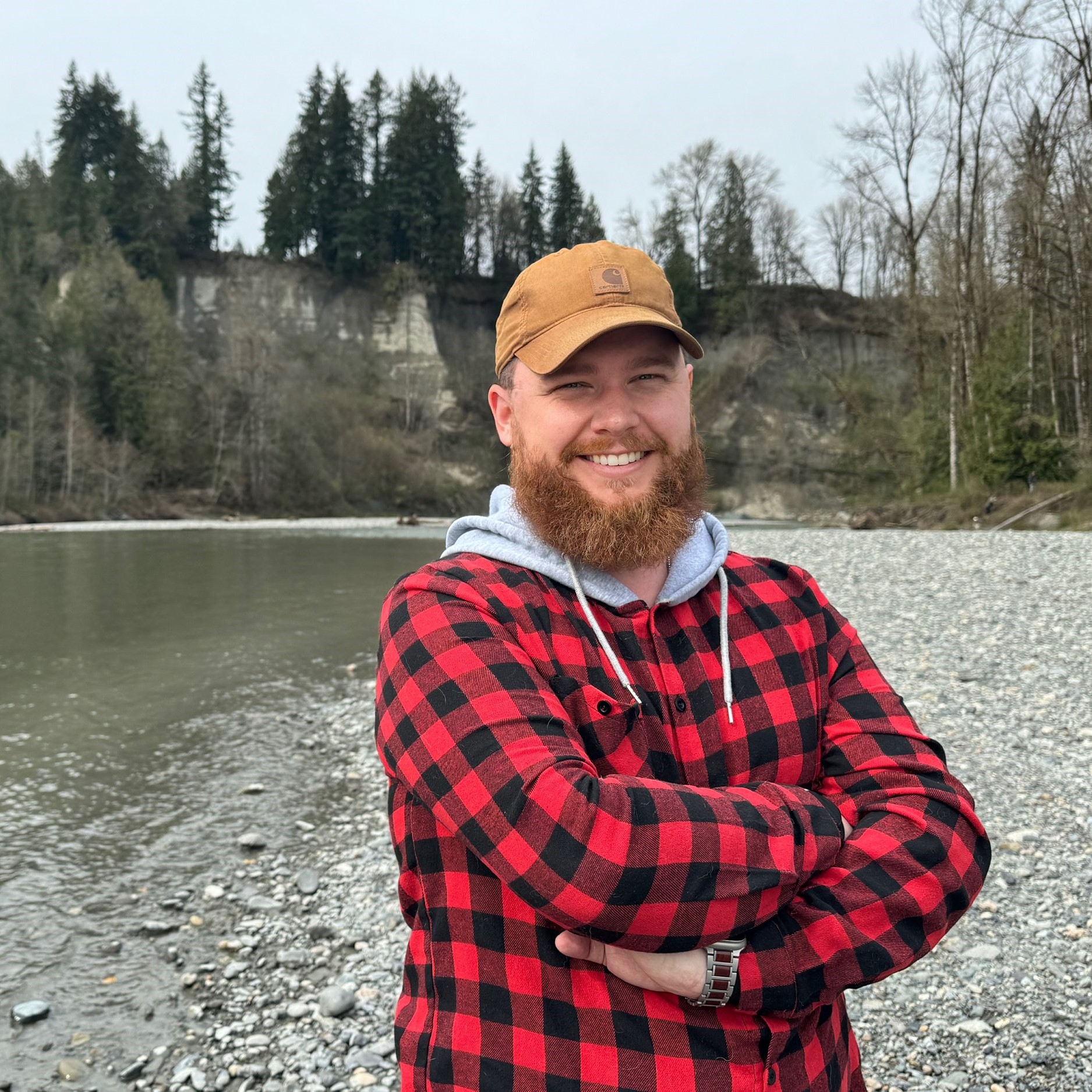
How have you used and supported libraries in your personal and professional experience?
In both my personal and professional life, I have greatly valued and supported libraries as essential community resources. Personally, I have used libraries as places to access information, books, and research materials on a wide range of topics, from history to technology. Libraries have provided me with a quiet space to reflect, learn, and engage with literature that has expanded my understanding of the world. Professionally, I recognize the importance of libraries in providing educational resources, digital access, and learning opportunities to people of all ages and backgrounds. I have supported libraries by advocating for public funding to ensure they remain accessible to all, particularly as they serve as hubs for students, job seekers, and lifelong learners. In my campaign, I plan to continue this support by ensuring that libraries have the resources they need to thrive and continue being pillars of our communities. Additionally, I understand the role libraries play in bridging the digital divide by providing internet access to those who may not have it at home, and offering community programs like workshops, literacy initiatives, and educational events that benefit everyone. Libraries are more than just buildings full of books; they are vital community centers that foster growth, learning, and inclusion.
What role do you envision public libraries playing in improving the lives of your constituents, and how will you ensure they are adequately funded and supported?
I envision public libraries playing a vital role in improving the lives of my constituents by serving as inclusive community hubs that provide access to education, information, and essential services. Libraries are not just places for books but are centers for lifelong learning, offering resources such as digital literacy training, job search assistance, internet access, and spaces for community engagement. They offer programs for all ages, from early childhood literacy initiatives to senior programs, helping bridge educational gaps and fostering social connections.
To ensure libraries are adequately funded and supported, I will advocate for robust public funding at the state level, recognizing that libraries are essential for equitable access to information. I will also explore partnerships with private organizations and local governments to expand resources and services. By championing legislation that prioritizes funding for public libraries, especially in underserved and rural communities, I will work to ensure they remain accessible, well-staffed, and equipped to meet the evolving needs of our constituents.
What connection do you see between libraries and informed citizens, healthy democracies, and the dissemination of accurate information within Washington state?
Libraries play a critical role in fostering informed citizens, which is essential for a healthy democracy. They provide free access to a wide range of information, allowing individuals to educate themselves on issues that impact their lives, from local government policies to global events. This access ensures that all citizens, regardless of economic background, can participate in civic life with a solid understanding of the issues at hand. By hosting educational programs, workshops, and forums on current events and civic engagement, libraries help cultivate a more informed and engaged electorate.
In the era of misinformation and "fake news," libraries also serve as trusted sources for accurate and reliable information. They provide vetted resources, including databases, scholarly articles, and books, that help combat the spread of false information. Librarians themselves play a vital role in guiding individuals toward credible sources and teaching critical thinking skills, empowering citizens to make informed decisions based on facts rather than misinformation.
In Washington State, where civic participation and community involvement are cornerstones of our values, libraries help disseminate accurate information and foster open dialogue. Supporting public libraries is therefore crucial in promoting a well-informed citizenry, which in turn strengthens our democratic processes by ensuring that all voices can be heard and that decisions are made based on facts.
How will you promote digital equity and ensure that libraries receive funding to close the digital divide, considering their decades-long experience in digital work?
Promoting digital equity is essential to ensuring that all residents, regardless of income or location, have access to the internet and digital tools, which are increasingly necessary for education, job opportunities, and civic participation. Libraries, with their decades-long experience in providing digital resources, are central to closing the digital divide.
To promote digital equity, I will advocate for increased funding for public libraries to expand their digital services. This includes securing state and federal grants specifically aimed at providing high-speed internet access, computers, and digital literacy training in underserved communities. Libraries are already trusted institutions that provide internet access and technology to those who may not have it at home, and investing further in these services will help ensure everyone has the opportunity to engage with the digital world.
In addition, I will work to ensure that rural and low-income areas receive targeted support to bridge the digital divide. This could include partnering with private companies and non-profits to provide discounted internet service, expanding Wi-Fi hotspots, and supporting digital literacy programs that teach essential online skills. By working to secure sustainable funding sources, I will help libraries continue their vital role in promoting digital inclusion and ensuring that all Washingtonians have the tools they need to succeed in the digital age.
How will you work to increase student access to strong school library programs staffed by qualified Teacher-Librarians?
I will work to increase student access to strong school library programs by advocating for policies that require every school to have a well-funded library program staffed by qualified Teacher-Librarians. Teacher-Librarians play a critical role in promoting literacy, fostering a love of reading, and teaching essential research and digital literacy skills. They ensure that students have access to a diverse range of learning materials and can navigate the increasingly digital landscape of information.
To achieve this, I will push for legislation that mandates the hiring of certified Teacher-Librarians in every school, especially in underserved districts, where library programs are often underfunded or cut altogether. I will also advocate for increased funding to ensure that these library programs have the resources they need, including up-to-date books, technology, and learning tools.
Additionally, I will work with educational stakeholders, including school boards and teacher unions, to emphasize the importance of strong library programs in the overall academic success of students. Studies have shown that students in schools with well-funded libraries and qualified Teacher-Librarians perform better academically, especially in reading and writing.
By making school libraries a priority, we can ensure that every student has access to the resources they need to succeed academically and become lifelong learners.
Libraries continue to see decreased funding for collections especially in rural and underserved areas. Presently, the state does not play any role in providing funds to public libraries. Would you support the creation of a state fund to provide money for public libraries’ collections?
Yes, I would support the creation of a state fund to provide money for public libraries’ collections, especially in rural and underserved areas. Libraries play a critical role in fostering education, literacy, and access to information, yet many struggle with reduced funding, particularly in areas that need these resources the most. Establishing a state fund dedicated to library collections would help ensure that all Washingtonians, regardless of where they live, have access to up-to-date books, technology, and educational materials.
Public libraries are essential for promoting lifelong learning and serving as community hubs, but without proper funding, they cannot provide the necessary resources for their patrons. A state fund would alleviate the burden on local communities and help bridge the gap in resource availability, ensuring equity in access to knowledge and information. This would be particularly beneficial in rural areas, where libraries are often one of the few sources of educational and digital resources.
Supporting such a fund would also align with broader goals of promoting education, reducing inequality, and ensuring that every resident, regardless of geography, has access to the tools needed to succeed in today’s information-driven world.
District 40
Elizabeth Lovelett | Charles Carrell
Responses to the WLA survey from Elizabeth Lovelett and Charles Carrell were not provided.
District 41
Lisa Wellman | Jaskaran Sarao
Responses to the WLA survey from Lisa Wellman and Jaskaran Sarao were not provided.
District 49
Annette Cleveland | Lucia Worthington
Responses to the WLA survey from Annette Cleveland and Lucia Worthington were not provided.
|

